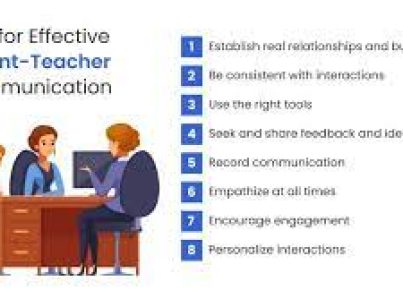1. Be Unprepared: Teachers should always come to parent meetings prepared with a clear agenda and student progress updates, including any areas of concern or improvement.
2. Overshadow Parent Concerns: It’s important to listen and understand the concerns of the parents. Teachers should avoid talking over them or disregarding their questions.
3. Be Defensive: A parent meeting is an opportunity for collaboration, not a confrontation. Teachers should maintain a professional, open attitude and avoid getting defensive when discussing student issues.
4. Make Personal Comments: Stick to the facts and discuss only the student’s performance in school. Avoid making any personal or negative comments about the parents or their parenting methods.
5. Lose Focus on the Student: The purpose of these meetings is to improve the student’s learning experience. Teachers should stay focused on discussing the child’s progress and their academic performance rather than unrelated topics.
6. Be Overly Critical: Giving constructive feedback is essential, but excessive criticism will only discourage parents from working with you on improving their child’s performance.
7. Interrupt Parents: Allow parents to speak without interruption. Respectfully hearing them out will encourage productive dialogue and show that you value their input.
8. Fail to Offer Solutions: If issues or concerns are raised during the meeting, be prepared to offer realistic strategies that promote improvement rather than merely pointing out the problems.
9. Use Jargon: Using technical terms or educational jargon can make it difficult for parents to follow the conversation and actively partake in finding solutions for their child’s success.
10. Overwhelm With Information: Try to prioritize what you discuss during a parent meeting; giving too much information at once can hinder conversation by overwhelming parents.
11. Show Disinterest or Apathy: Actively listening and empathizing with your students’ parents will lead to more successful outcomes for the child’s education journey, so avoid appearing uninterested or apathetic during these meetings.
12. Run Over Time: Parent meetings often have strict time allotments, so respect each family’s schedule by focusing on the main points and remaining within the scheduled time.





